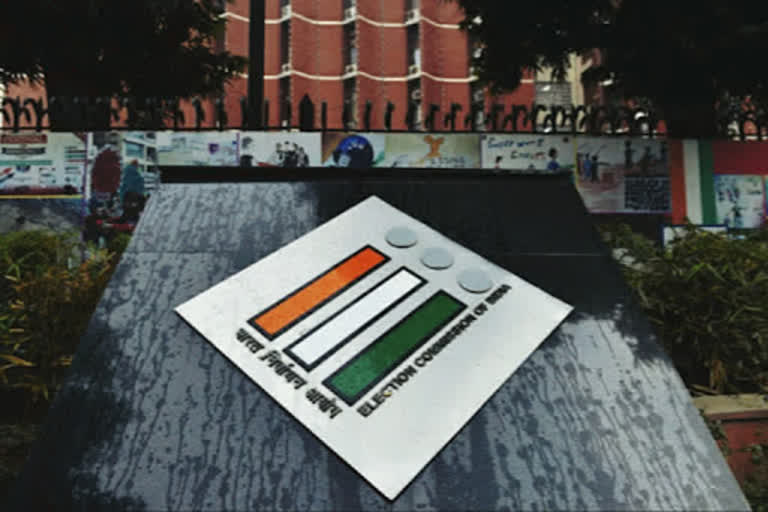Hyderabad: Though the Election Commission successfully conducted the Rajya Sabha polls amidst the COVID-19 pandemic last week, the bigger challenge it faces is the prospect of conducting at least six state assembly polls over the next one year.
According to data from the International Institute for Democracy and Electoral Assistance, at least 66 nations and territories world over, postponed their elections due to COVID-19 from February 21, 2020 to June 21, 2020. However, in the same period, at least 34 nations and territories decided to go ahead with their elections despite the fears arising due to COVID-19.
The Constitutional dilemma
In India however, the problem arises due to the fact that unlike in the case of Rajya Sabha or Legislative Council polls, which can be postponed indefinitely, the election body can only postpone elections to the Lok Sabha and State Legislative Assembly for a maximum of six months.
According to Article 85 (1) and Article 174 (1) of the Constitution, six months is the maximum time limit between two sessions of the Lok Sabha and Legislative Assembly respectively.
Though Article 172 (1) of the Constitution allows elections to be postponed for one year in the case of emergency, and for an additional six months after the emergency is lifted. However, a state of emergency can only be declared when the nation's sovereignty and security are under threat, and not during a pandemic.
The only other option would be to declare President's rule in the states, which is not desirable.
Read: Constitutional logjam may impede Jagan govt from tapping treasury
With experts suggesting that the pandemic could last for as long as two years, postponing state elections for such a long period would be against the very spirit of India's democracy and federalism.
Hence, the Election Commission would have to find a way to safely hold these elections.
Over the course of the next one ear, elections in Bihar must be concluded by November 29, 2020; Tamil Nadu by May 24, 2021; West Bengal by May 30, 2021; Assam by May 31, 2021; Kerala by June 1, 2021; and Puducherry by June 8, 2021.
The South Korea Model
India could follow the example of South Korea, which recently conducted its national elections amidst the pandemic, and also recorded its highest voter turnout of 66.2% in the last 28 years.
Voters were mandatorily required to wear face masks and gloves, maintain social distancing, and go through temperature screening before exercising their franchise.
Read: Goa BJP wants zilla panchayat polls before municipal elections
Those who failed the screening were asked to cast their ballots in separate booths.
Besides, those under quarantine were allowed to cast their votes via postal ballots.
India's population a big challenge
In India however, it is going to be a much bigger challenge owing to high population density, where following social distancing might prove to be an extremely uphill task.
With no relaxations regarding face-masks expected in the near future, voters might have to wear them while queuing up outside the polling station.
However, for the poll agents to verify the voters' identity, voters might have to remove their masks while entering the booth.
Needless to say, sanitisers will also have to be provided at the polling stations.
However, for elections to take place like this, the poll body will have to hold multiple discussions with medical experts and even political parties to chalk out a strategy.



